OU student helps create new method to detect early osteoarthritis
Fatima Bhatti worked with researchers around the country to develop innovation that could revolutionize diagnostic testing for the most common form of arthritis
Osteoarthritis (OA) is the most common form of arthritis, affecting more than 32 million U.S. adults. The condition, caused by the breakdown of joint cartilage between bones, can result in pain, stiffness, swelling and even disability.
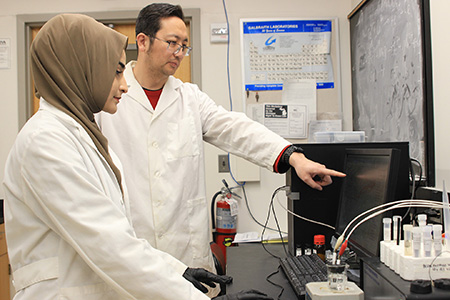
Fatima Bhatti with her faculty mentor, Dr. Zhe Wang
Since symptoms usually develop slowly and worsen over time, early detection of joint inflammation is critical for effective diagnosis and treatment. Oakland University student Fatima Bhatti worked with researchers from universities across the U.S. to devise a quick, economical way to screen for early OA.
The team designed and developed a new type of testing strip to screen for the presence of TNF-α, a protein that is secreted by the body specifically during times of injury or inflammation. Found in bodily fluids, TNF-α typically remains undetectable in healthy individuals, but elevated levels are found in inflammatory and infectious conditions. The higher the concentration, the more advanced the disease. In the case of OA, disease progression is indicated by TNF-α levels within joint fluid.
“Our detection method is groundbreaking in the field of science as it is one of the first point-of-care tests that can detect proteins in body fluids at low concentrations, with excellent selectivity, and in a quick and low-cost manner,” said Bhatti, a senior double majoring in biochemistry and psychology.
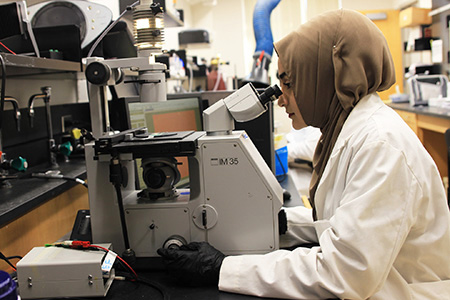
Fatima Bhatti
The testing strip is specially designed and fabricated to enable selective TNF-α attachment within the body. When the TNF-α protein attaches to the strip, the strip’s electrical properties change, allowing a signal to be picked up and transmitted to sensor software. Using this method, results can be obtained at the bedside within 5-10 minutes, similar to a standard glucometer test.
“With the clinical application of our biosensor, we would be able to achieve rapid results about the presence and progression of osteoarthritis through a cost-effective and minimally invasive technique,” said Bhatti. “This is a significant improvement over current diagnostic tests, which require drawing out joint fluid, similar to a blood draw, and sending it to a lab for further testing.”
The biosensor was designed with the idea of becoming a small patch that a person wears on their knee, Bhatti explained, adding that “the only invasive part of the procedure will be anchoring the patch to the skin by inserting a micro-needle electrode into the joint. The micro-needle would serve as the biosensor itself and would not interfere with daily activities or cause pain to the patient.”
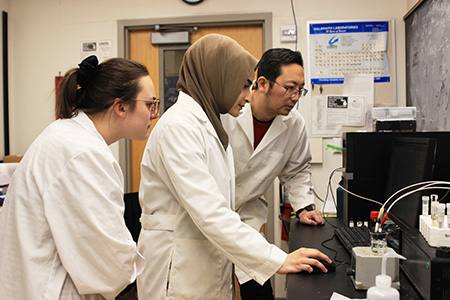
Fatima Bhatti with Dr. Zhe Wang and student researcher Erin Witherspoon, who also contributed to the project.
While the biosensor is still being tested in preparation for future FDA-regulated clinical trials, the researchers believe that it will pave the way for efficient early screening of OA and prevention of its progression from the outset. This would represent a significant advancement in the field of osteoarthritis research, as early detection and intervention have the potential to stop most osteoarthritis development.
In addition, the success of this biosensor would nurture optimism that the same technology could be used to detect other disease-associated proteins. That could lead to breakthroughs in the early detection and treatment of a range of other conditions, from diabetes to heart disease.
“My interest in the prevention and management of chronic non-communicable diseases has fueled my passion for this project,” said Bhatti. “I believe that raising awareness of our ability to guide our own health towards positive outcomes in the long run is the most hopeful theme in medicine.”
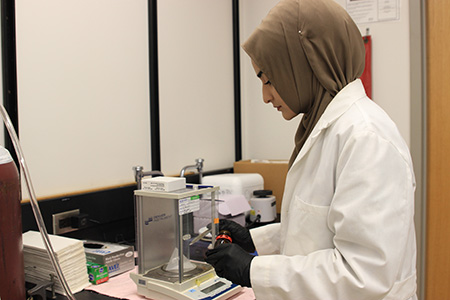
Fatima Bhatti
OU collaborated on this research with Washington University in St. Louis, George Mason University and Georgia State University, which each managing a different aspect of the project. The team, consisting of nine researchers, published its findings in the journal Advanced Composites and Hybrid Materials.
Bhatti was the paper's co-lead author and was joined by her faculty mentor Zhe Wang, assistant professor of chemistry, who oversaw the research project at OU and served as corresponding author on the paper. Bhatti learned of the project as a student in Dr. Wang’s analytical chemistry class, and started working in his lab soon afterward. She credits Dr. Wang for helping her develop vital research skills, including how to think critically, troubleshoot experimental issues and analyze data – skills that will serve her well as she pursues a career in medicine and medical research.
“These skills are not only valuable in the field of research, but also in medicine, where quick thinking and problem-solving are crucial in providing the best care for patients,” she said. “Dr. Wang's emphasis on collaboration and teamwork has taught me the importance of effective communication and leadership in achieving common goals. This project has truly been a team effort, and I am excited to see how it can make a difference in the field of biomedical research.”

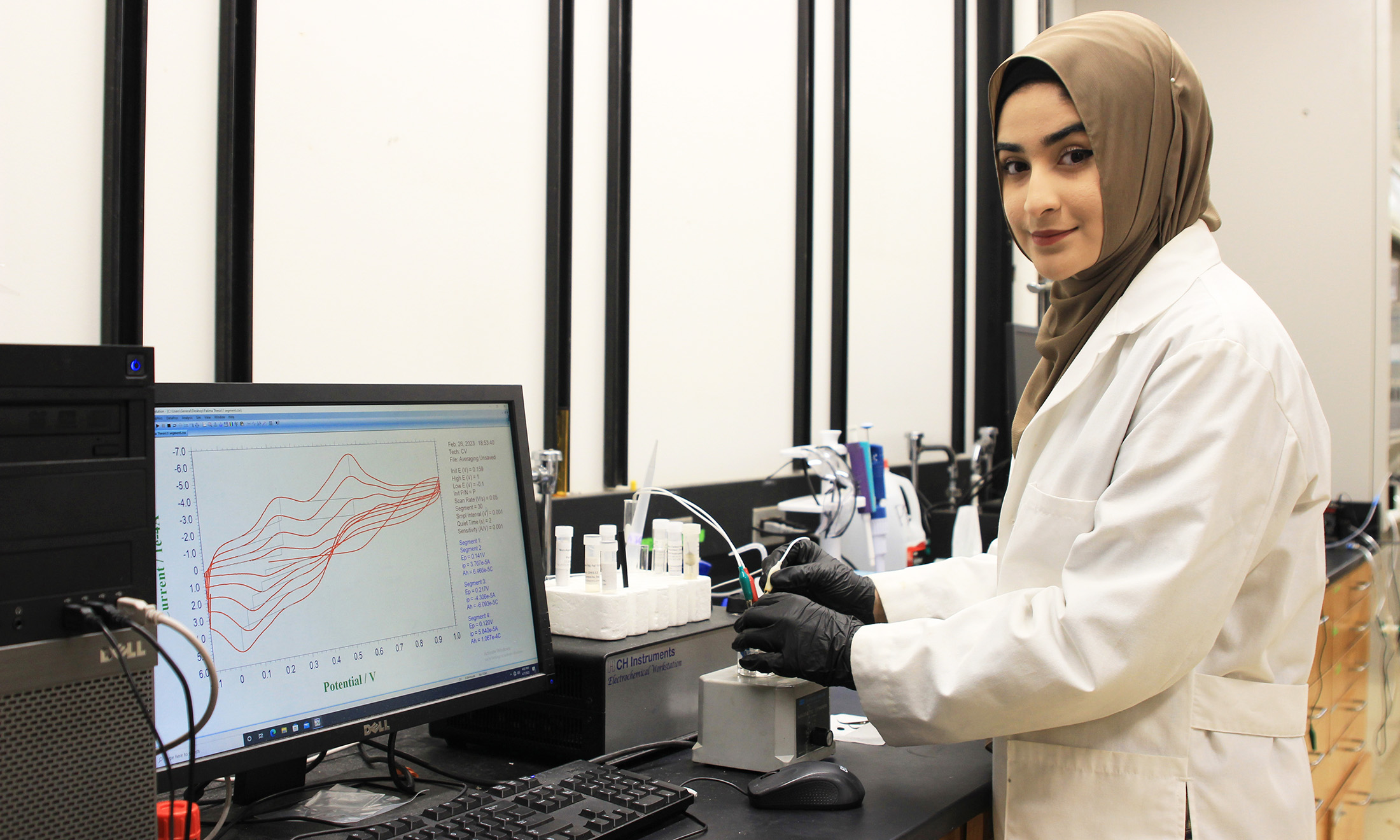
 April 24, 2023
April 24, 2023







